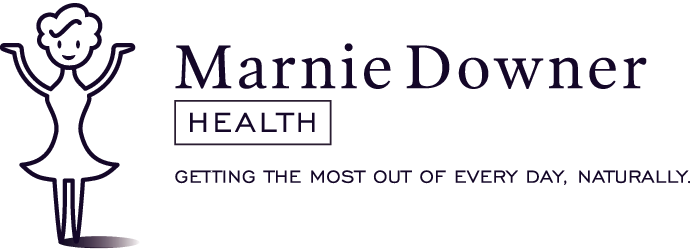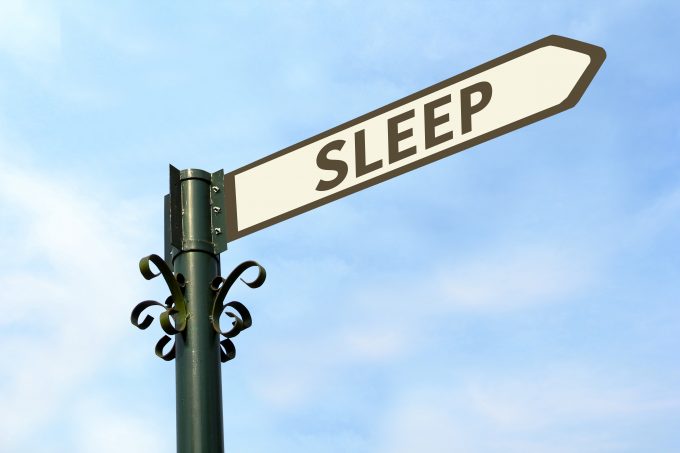Have you met my cousin Mel O’Tonin? With her sweet, soft lullaby, she’ll put you to sleep within the blink of an eye.
Seriously though folks, Melatonin is the most important hormone our body makes to help us get to sleep. Right there in the middle of your brain is a little gland about the size of a rice grain called the pineal gland. It produces the Melatonin that helps regulate our circadian rhythms (our 24 hour body clock).
How well we secrete Melatonin depends on a number of factors:
- Age
- Sex
- Hormonal cycles
- Drugs
- Season
If we don’t produce enough Melatonin we are at increased risk of:
- Accelerated cancer cell and tumour growth
- Depression – it’s the precursor to the neurotransmitter, Serotonin
- Osteoporosis
- Plaques in the brain (think Alzheimer’s)
- Lowered immunity – it’s so important that a lack of it causes the thymus gland (integral to the immune system) to shrink.
I think my favourite thing about Melatonin is that it is the most powerful antioxidant our body produces. Why is that important? Think anti-ageing and cooling excess inflammation. If that wasn’t enough it’s been recently shown to reduce unhealthy weight gain. I’m off to bed as soon as the sun goes down!
Things that adversely impact your Melatonin production.
Dim, Dim the Lights
It seems exposing ourselves (not Benny Hill style) to artificial light at night shuts down Melatonin production. By reading those texts and emails in the middle of the night you are increasing your risk of a whole host of health issues (see above).
When you turn on the light at night (even for a second) you immediately send your brain misinformation about the light-dark cycle. Believing day has arrived, your brain instructs the pineal gland to stop producing Melatonin.
Given that we evolved in the glow of fire light, it makes sense (backed up with research) to have a low wattage bulb with yellow, orange or red light in the bedroom. Ooh so romantic. I guess I’ll just be bumping around in the dark next time I get up for a wee in the night.
Another big interuptor of Melatonin production is Electromagnetic Fields (waves that travel through space).
Think:
- Mobile phone, radio and TV towers
- WIMAX across the city
- Smart meters in you or your neighbour’s home
- Wireless routers
- Cordless and mobile phones
- Wireless baby monitors, game consoles, printers
- Wireless security systems
DID YOU KNOW? On the 29th Jan 2015 France banned wireless technologies from nurseries and childcare centres?
If you are having trouble sleeping, check your bedroom first. Remove the technology and take note of where the metre box is – you may need to move your bed away from a wall that backs onto a metre box.
Maximising Melatonin
Removing technology from the bedroom, in my mind, is one of the best ways of improving your sleep.
Melatonin has been extracted from the seeds and leaves of a number of plants
- Cabbage (your boobs will also love this)
- White radish
- Sprouts
- Feverfew (a herb I generally prescribe for headaches)
- Walnuts – makes sense, they look like little brains.
Even though we talked about sleep hygeine in the previous blog post, here are a few more suggestions that may be of help.
- Ensure you get BRIGHT sun exposure regularly – it reminds the pineal gland of what to do.
- Sleep in complete darkness or as close as possible to – get rid of the clock radio, even that light will impact your sleep.
- Take a hot bath 90-120 minutes before hitting the hay – this increases your body temp. and when you get out it abruptly drops, signalling the brain that it’s time for zeds.
- Get a salt lamp (orange glow). Turn this on at night if you need to get up for a ‘comfort stop’.
- Get some sun in the morning if possible (we need more as we age). Bright light helps reset your circadian system.
Having trouble losing weight? It could be that you are not getting good quality sleep (that’s when we shed the kilos).
If you would like more information or support with getting quality sleep contact the clinic today for a comprehensive sleep assessment.
“Anyone can escape into sleep, we are all geniuses when we dream, the butcher’s the poet’s equal there.” ~ Emile M. Cioran
In health,
Marnie


